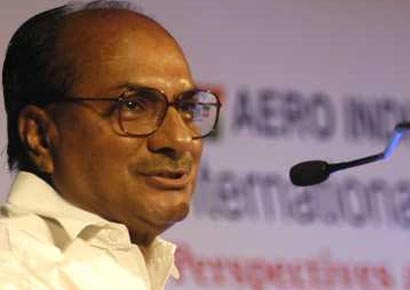Chandigarh, December 30
While the Ministry of Defence has finally issued much awaited instructions for implementation of the S C order correcting that rank pay anomaly that arose consequent to the implementation of the Fourth Pay Commission, veterans have pointed out a twist in the instructions that makes the apex court’s orders largely redundant.
Not only do the instructions give pay scale upgradation of armed forces officers the go-by, but also leave out re-fixation of pensions of those who retired before Jan 86 as well as consequential benefits for all officers arising out of the implementation of the fifth and sixth pay commissions. Veterans estimate that the new instructions, issued on Friday, are applicable to only about 20,000 officers who were holding the rank of captain to brigadier as on January 1, 1986, where as it should have covered over 80,000 officers, pensioners and widows had the court order been implemented in its letter and spirit. The SC had in 2010 ruled that rank pay, first introduced by the Fourth Pay Commission, is to be included as part of basic pay for the purpose of calculating emoluments, allowances & benefits. Contrary to the recommendations, the orders issued for implementation of 4th Pay Commission had deducted rank pay from basic pay, causing financial loss to officers. A similar anomaly arose after the fifth pay commission too. An application by the Union of India before the SC to recall its order was rejected on September 4, 2012. The court had ordered re-fixation of pay “with effect from January 1, 1986.” By the MoD’s own affidavits and submissions, the implementation of the judgment would involve re-fixing of not only the Fourth Pay Commission but would affect 5th and 6th pay commissions. The MoD also maintained that it would alter payment of all consequential and resultant benefits of officers and their families wherever applicable. Further in a recently filed affidavit seeking extension of time for implementation of the judgment, the MoD had stated that the judgment related to three successive pay commissions and also affected the benefits of officers who had retired prior to 1986. While the court had ordered re-fixation of scales with effect from January 1, 1986, Para 6 of the MoD instructions issued yesterday grants the benefits to officers “as on 01-01-1986.” “This subtle variation makes world of a difference. The judgment, which was to have a cascading effect on the fixation of pay and pay-scales after January 1, 1986, that is with effect from the fourth pay commission, continuing till date, has been effectively rendered applicable only for those persons who were in receipt of rank pay as on January 1, 1986,” a high court lawyer dealing with service matters pointed out. (Source- The tribune)
While the Ministry of Defence has finally issued much awaited instructions for implementation of the S C order correcting that rank pay anomaly that arose consequent to the implementation of the Fourth Pay Commission, veterans have pointed out a twist in the instructions that makes the apex court’s orders largely redundant.
Not only do the instructions give pay scale upgradation of armed forces officers the go-by, but also leave out re-fixation of pensions of those who retired before Jan 86 as well as consequential benefits for all officers arising out of the implementation of the fifth and sixth pay commissions. Veterans estimate that the new instructions, issued on Friday, are applicable to only about 20,000 officers who were holding the rank of captain to brigadier as on January 1, 1986, where as it should have covered over 80,000 officers, pensioners and widows had the court order been implemented in its letter and spirit. The SC had in 2010 ruled that rank pay, first introduced by the Fourth Pay Commission, is to be included as part of basic pay for the purpose of calculating emoluments, allowances & benefits. Contrary to the recommendations, the orders issued for implementation of 4th Pay Commission had deducted rank pay from basic pay, causing financial loss to officers. A similar anomaly arose after the fifth pay commission too. An application by the Union of India before the SC to recall its order was rejected on September 4, 2012. The court had ordered re-fixation of pay “with effect from January 1, 1986.” By the MoD’s own affidavits and submissions, the implementation of the judgment would involve re-fixing of not only the Fourth Pay Commission but would affect 5th and 6th pay commissions. The MoD also maintained that it would alter payment of all consequential and resultant benefits of officers and their families wherever applicable. Further in a recently filed affidavit seeking extension of time for implementation of the judgment, the MoD had stated that the judgment related to three successive pay commissions and also affected the benefits of officers who had retired prior to 1986. While the court had ordered re-fixation of scales with effect from January 1, 1986, Para 6 of the MoD instructions issued yesterday grants the benefits to officers “as on 01-01-1986.” “This subtle variation makes world of a difference. The judgment, which was to have a cascading effect on the fixation of pay and pay-scales after January 1, 1986, that is with effect from the fourth pay commission, continuing till date, has been effectively rendered applicable only for those persons who were in receipt of rank pay as on January 1, 1986,” a high court lawyer dealing with service matters pointed out. (Source- The tribune)



